
Public voting introduced for 2020 World Sailing 11th Hour Racing Sustainability Award as nominations open
Public voting has been introduced for the 2020 World Sailing 11th Hour Racing Sustainability Award as the nomination period officially opens. The World Sailing […]




FIBA’s Foundation launches new “Basketball For Good” platform
Read on fiba.basketball MIES (Switzerland) – FIBA’s Foundation, the International Basketball Foundation (IBF), is launching its new “Basketball For Good” digital platform today. The Foundation uses […]



This guide to Climate Action is part of the “Sustainability Essentials” series developed by the IOC. IOC aim here is to provide a general understanding of the issues related to climate change and managing carbon (or greenhouse gas/GHG) emissions. The IOC examine what this means, why it is important, how it relates to sport and what a sport organisation can do to address climate change. In addition, IOC look at climate adaptation measures that organisations increasingly need to adopt in order to continue their day-to-day activities in the face of more extreme and variable weather patterns.




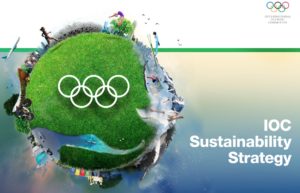
Sustainability is one of the three pillars of Olympic Agenda 2020 alongside credibility and youth. In line with its recommendations, the IOC has developed a Sustainability Strategy. Based on the responsibility of the IOC as an organization, as the owner of the Olympic Games, and as the leader of the Olympic Movement, it focuses on infrastructure and natural sites, sourcing and resource management, mobility, workforce, and climate.
Here you can find the following elements of the IOC sustainability strategy.












2nd International IAKS Swimming Pool Conference: On the way to sustainability for public pools
IAKS
The 2nd IAKS International Pool Conference is the perfect forum for discussing current trends in the fields of management, architecture and technology and for exchanging ideas with operators / owners, planners / consultants and manufacturers in the pool industry on the international level. Learn from experts from Denmark, Germany, Iceland, Norway, Switzerland, and the UK!
The conference opens on 23 September with a visit to the indoor pool in Asker, which was built in 2017 to passive house standards and, in view of its energy efficiency, is considered an exemplary project of the Norwegian FutureBuilt programme. The tour will be followed by a networking dinner in Asker, which will also be attended by the IAKS Expert Circle on Pools.

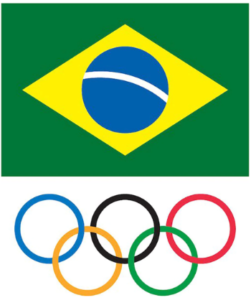
BOC is the first National Olympic Committee of the Americas to become a signatory of the UN “Sport For Climate Action Framework”
The Brazilian Olympic Committee (BOC) is the first National Olympic Committee of the Americas (and second in the world after Spain) to sign the […]



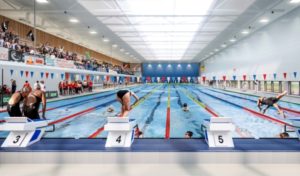
New Winchester Sport & Leisure Park reaches major milestone
THE new sport & leisure park in Winchester is set to become one of the greenest buildings in the south of England after reaching its latest […]

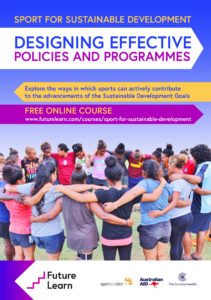
Launch of First Online Global Course on Sport and the SDG’s
A new, freely available online course launched this month will help individuals and organisations harness the potential of sport in their work towards sustainable […]

















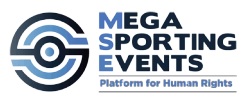
White Paper – Host Actors and Human Rights Due Diligence in the Sports Context
A total of 11 White Papers have been produced, clustered into four themes referring to key stakeholder groups. These White Papers aim to present the latest thinking, practice, and debate in relation to key human rights issues involved in the planning, construction, delivery, and legacy of MSEs. Each paper also considers the case for, and potential role of, an independent centre of expertise on MSEs and human rights.
Based on a case study from the Commonwealth Games, this paper explores the human rights duties and responsibilities of mega-sporting event (MSE) ‘Hosts’, defined as the event organising committee and their local and national government counterparts.
It reviews frameworks including UN Guiding Principles on Business and Human Rights (UN Guiding Principles) and Children’s Rights and Business Principles as appropriate roadmaps for implementation by the state and private sector actors engaged in MSE delivery and legacy realisation.
It highlights an emerging area of good practice using a case study from the Commonwealth Sports Movement, providing an overview of the steps taken to date, future plans, and lessons learned so far. Whilst at an early stage, it provides a potential direction of travel for other international federations thinking of undertaking a similar journey to integrate human rights considerations in event hosting.
It concludes by reflecting on what this case study implies for an initiative for collective action, and how the initiative with the Commonwealth Sports Movement can provide valuable lessons to inform the development of more universal roles and functions.
It concludes by focusing on the changing support requirements the Commonwealth Sports Movement is likely to need over time as buy-in and capacity in relation to human rights are built.



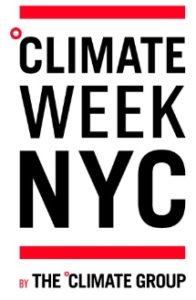
The Climate Group
The global COVID-19 pandemic has changed the way in which the world operates – at a personal, business, governmental, and inter-governmental level. As the focus shifts to how we rebuild, Climate Week NYC 2020 will explore what lessons we can learn in our pursuit of a net-zero future that embraces a just transition and leaves no one behind.
We must rebuild the global economy for us all – people and planet – as we begin to recover. And we must halve global emissions by the end of this decade.
COP26 has been postponed and the upcoming U.S. election will determine the approach of the world’s largest economy to climate change for the next four years and beyond. This is our opportunity to put people at the heart of climate action.
With this, Climate Week NYC has never been more important and our “For New York, For The World” approach has never been more timely. We must have crucial conversations and do the hard work now to shape the coming years, even if much of it cannot be in person. As one of the few international climate events now taking place this year, hosted in association with the United Nations and the City of New York, all eyes will be on Climate Week NYC as we step up to the challenge to build a better future.





